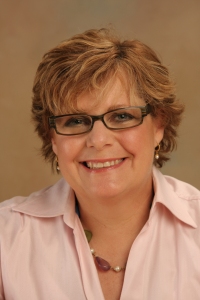You may or may not have heard that we are getting hammered with the  snowstorm in the Northeast today. My son’s school, Georgetown University in Washington, DC, has been closed since Saturday; unheard of! Anyway, all these blizzard conditions have allowed me to reflect back on various snow days in my children’s school life. While snow days are a child’s best friend, it can be a real hassle for the parents; either the working mother who needs to find alternative child care options or the stay-at-home mom who has to figure out how to keep the kids busy. My personal experience with snow days also brings back memories that at this point, I can only laugh about it, while at the time it was definitely not funny.
snowstorm in the Northeast today. My son’s school, Georgetown University in Washington, DC, has been closed since Saturday; unheard of! Anyway, all these blizzard conditions have allowed me to reflect back on various snow days in my children’s school life. While snow days are a child’s best friend, it can be a real hassle for the parents; either the working mother who needs to find alternative child care options or the stay-at-home mom who has to figure out how to keep the kids busy. My personal experience with snow days also brings back memories that at this point, I can only laugh about it, while at the time it was definitely not funny.
Before schools had great websites and mothers were comfortable with the internet, the way we were notified that school was closed was through what was called the “phone chains”. The superintendent or head of the school would decide very early in the morning whether or not it was necessary to close school for the day. They would make a call to the first mother, which was would then start a phone chain where all the families would get notified by a phone call. As a head class mother, I would get one of the first calls which was very early in the morning. It was always interesting to get that call at 5:30 am to be told that you can sleep extra late because no one has to get up to get the school. Anyway, I remember getting that call one year at maybe 5:45 in the morning. I was still very asleep, but I had my list of mothers that I had to call right next to the phone. So I made those calls and went back to sleep. The problem was that I had children at two different schools, and I had called the wrong list of parents.
So I had mothers who were trying to get their kids to a school that had been closed and then I had a whole group of kids that never showed up for school that day. I realized my major mistake when I got the call from the school about where was my son and I realized what I had done. I had to apologize to all the mothers who fought to get their kids to a school that was closed (because they never got “the” call) and then had to call the other mothers at the other school and tell them that they had to hurry and get their kids to school. Needless to say, I was not made a class mother the next year and I love the school website that now posts these types of announcements and has allowed schools to get rid of the phone chains.
Another time, the kids had gone to school and the snow started to really come down. So all of the parents were notified that school was closing early and we had to come get the kids at school. I was already out and volunteered to get a group of the neighborhood kids. I rounded up the first girl who was the oldest of the group. She was very quiet and easy to attend with. I then got the other kids who were younger and much harder to get moving in the right direction. As the snow was really coming down at this point, I was concentrating on getting everybody to the van safely. It’s that time when you think a sheep dog would really be a big help in rounding them in the right direction.
Anyway, I cleaned off the car as best as I could and yelled at all the kids to put on their seat belts, be quiet and let’s get home. As I turned down the street to take the oldest girl home, (the one who was the first one I had gotten from the principal’ office, the one who was very quiet, but always very cooperative), one of the other kids in the car said, “Why are we going this way?” And I said, “I am taking Nicole home first”. At that point, they pointed out to me that Nicole who always sat in the seat behind the driver’s seat was not in the car. In all the commotion of getting the others to the car, I had left her at school. Needless to say her mother said, “Don’t worry. I think I’ll take it from here.”
Anyway let us know your snow day stories. Also, what is the equivalent of a snow day for kids who go to school in a warm climate? Have fun, stay warm and be safe!
 Researcher: Daniel Willingham, University of Virginia
Researcher: Daniel Willingham, University of Virginia


 Posted by findingschools
Posted by findingschools  broad,’
broad,’








